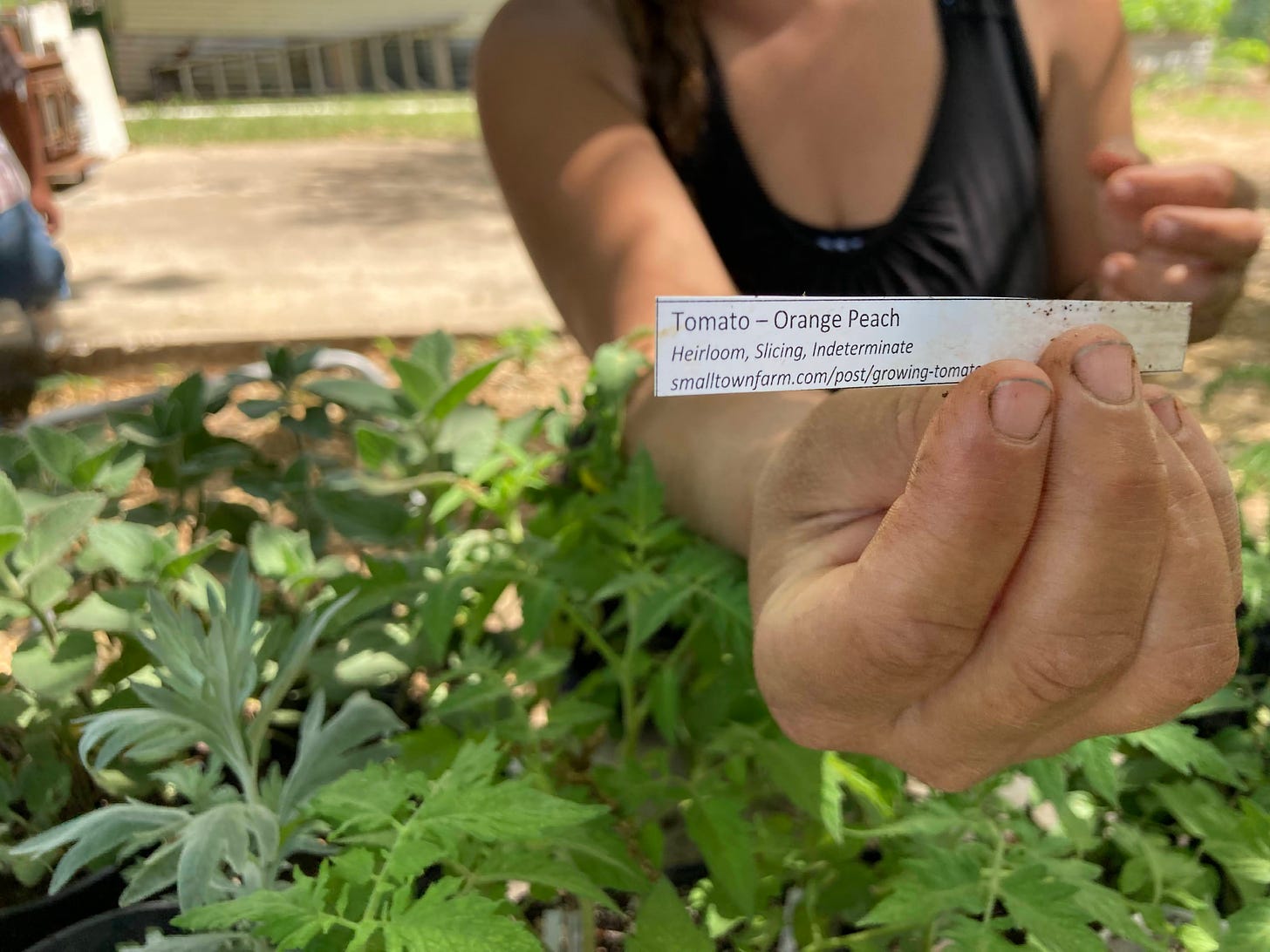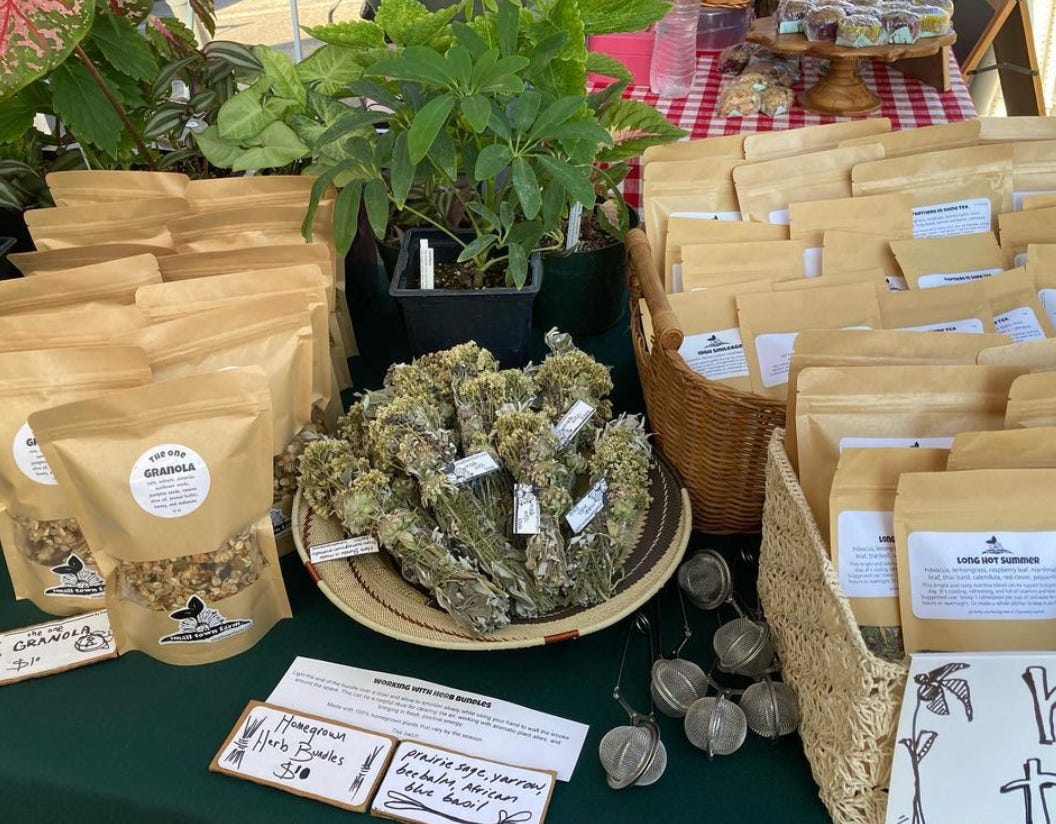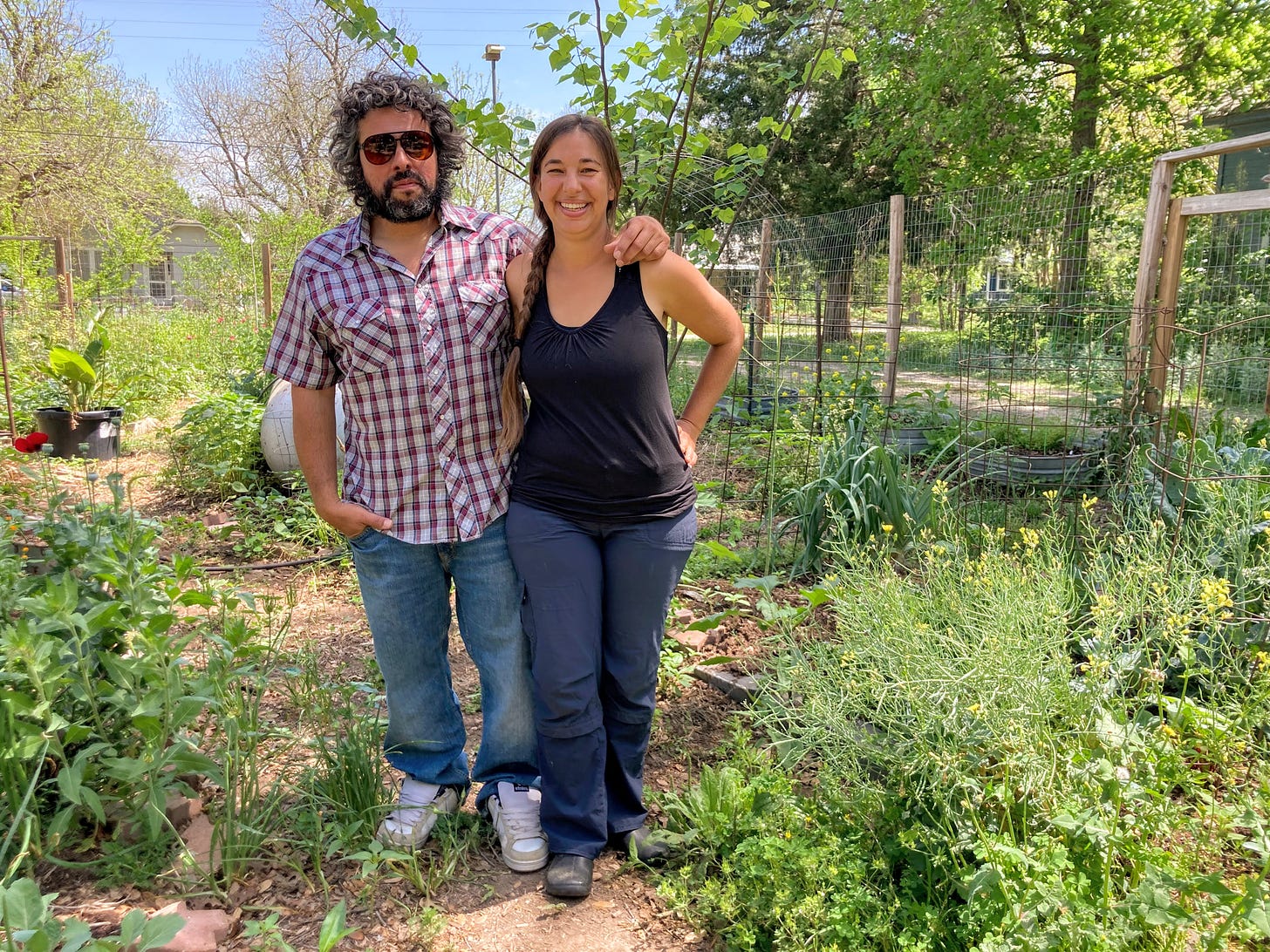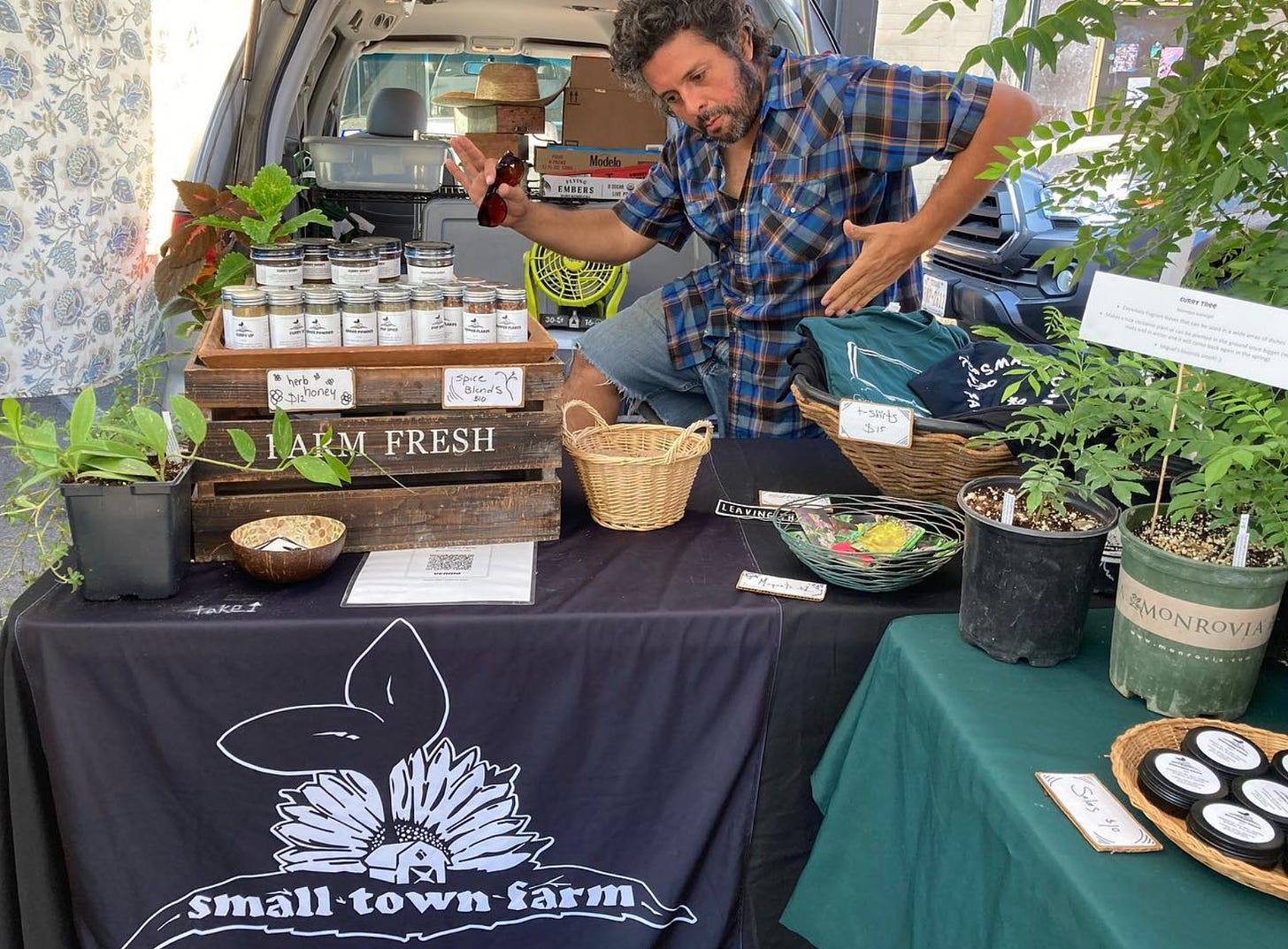Kickflipping into the Small Town Farm life
From skateboarding the Drag to running a homestead farm in Fentress, this Austin couple is part of the latest wave of beginning farmers.

Hi, Feminist Kitchen friends!
Earlier this week, I told you about a couple of stories I wrote this summer for Texas Co-op Power magazine, one about a group of folks revitalizing the food community in Menard and another about the challenges facing new (and new-ish) farmers in Central Texas, among them, inflation, rising feed costs, and changing demand for local food.
That second story — commissioned for the Bluebonnet Electric Co-op part of the magazine — included a sidebar on Small Town Farm, a one-acre farm in Caldwell County that embodies so much of what I see happening with beginning farmers across the state.
Miguel Guerra and Cristen Andrews did not grow up on farms, but after living the first half of their adulthoods in Austin, they decided that plants would be what carried them out of the rat race.
I wanted to tell their story as a way to illustrate a much larger trend, that new farmers are flocking to agriculture, even though the hurdles are higher than ever. According to a new survey from the Central Texas Young Farmers Coalition, 78 percent of young farmers identify as first-generation farmers, and nearly a third say that their farm work is an extension of their anti-racism work.
You can find out more about Small Town Farm on Instagram @smalltownfarmtx, or visit them on Saturdays from 9 a.m. to 1 p.m. at the San Marcos Farmers Market on the square in San Marcos.
I hope you enjoy this newsletter! The Feminist Kitchen is a mix of reported stories and first-person columns, and I try to publish one a week. If you want to become a paid subscriber to support my work, check out a 7-day trial and see if you like it.
See you next week!
Addie
Miguel Guerra spent the 1990s skateboarding all over Austin and running a baked potato restaurant on the Drag.
His partner, Cristen Andrews, grew up in Pflugerville and worked as a writer at a marketing agency before discovering that she enjoyed working with plants as much as words.
He grew up in Eagle Pass, the grandson of a curandera, and he never lost that pull to be more connected with the land. Andrews’ dad kept a small vegetable garden when she was young, and she never lost that child-like sense of wonder about plants and animals.
Like so many beginning farmers, they weren’t in a position to inherit farmland, but that didn’t stop them from dreaming about it. They didn’t want a whole farm, though. Just an acre or two would be plenty to practice the skills they’d picked up over the years.
As they looked for land, they spent countless hours building a backyard garden in Austin. Andrews enrolled in programs to learn about permaculture and herbalism.
They started making trips to Fentress, a community along the San Marcos River east of the college town that bears its name, where Guerra says he felt called for decades.
Guerra, whose baked potato restaurant on the Drag was called Spudnik, knew people who lived there, and they started building a tiny house on their property along the main street in Fentress, which caught the attention of the whole town.
Eventually, they learned that an acre lot with an overgrown yard and a small, historic home was going to go on the market. Andrews wrote a letter to the owner. They didn’t have the highest bid, but they won over the property owner with their commitment to the community.
They moved into that 100-year-old house three years ago, and now the once weedy space is home to Small Town Farm, a tiny but mighty small scale farm that is overflowing with flowers, fruit trees, herbs, vegetable seedlings, and medicinal plants that they sell at the San Marcos Farmers Market.

The first garden bed they installed was in the front yard so they could meet neighbors walking by. Now they know everybody in town. Andrews started the town’s Facebook group, which now acts as a Buy Nothing group and a Next Door.
“We’re always connecting people who don’t know each other,” Andrews says.
After a year of growing produce to sell at the farmers market, they changed strategies, to sell transplants, seedlings, and value-added products, like chai-spiced honey or lemongrass tea, rather than the vegetables themselves.
The strategy seems to be working. Each weekend, they bring a truck’s worth of transplants and sell most of them, if not all. Andrews is always making new varieties of tea, honey, or granola to sell, but she also brings a stock of free seeds to give away to passers-by, including instructions on how to grow them. “We wanted to be able to give something away that people could take even if they didn’t buy something,” she says.

Small Town Farm isn’t what you would call a production farm. They aren’t selling the fruits and vegetables customers need to make dinner. But they are participating in commercial agriculture for the first time, during what feels like unprecedented times, and doing it on their own terms, in a way that suits the lifestyle they want
MORE: Hard lessons for small farms
Guerra says that his experience running a skate shop in Austin years ago informs how he works now, weaving the things he loves with the things people will pay him for. Andrews continues to work as an educational writer, a career she’s had for 15 years.
“I don’t know if I want to put 100 percent of my money-making pressure on the plants,” Andrew says. “I don’t want to look at the greenhouse and be like, ‘OK, this much square footage equals this many dollars’ and think about it like that. We have to do that a little because we’re a business, but I want it to be more about sharing abundance and community.”
Eventually, they plan to short-term rent the tiny home that they built in the back of the property to supplement their income, but being plant people who are living close to the land is how they want to live, not their job.
Guerra laughs at the idea that their dreams have come true. He pulls out a sticker he designed that says, “Leaving the dream.”
They don’t talk about dreams anymore. This small farm life is their reality.
“We want to be a place where people can come and interact with the river and nature,” Andrews says. “That’s why we’re here.”
Previously on The Feminist Kitchen: The changing face of rural Texas, But now there's only love in the dark, In my imagined nation…, Billie Eilish and the art of radical care, Household archaeology and the science of stuff, ‘I don’t want to go back to the butchery again’, Spending Juneteenth with the one and only George Washington Carver, Title IX and a tale of two tomboys




